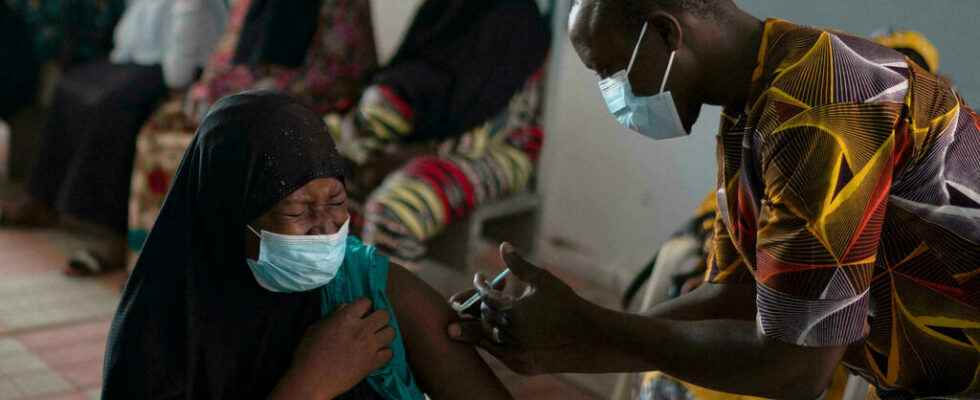Amnesty International publishes this Tuesday, March 29 its report for 2021 on the situation of human rights in the world. The NGO is very critical of rich countries. In this period affected by the Covid-19 pandemic, she accuses them of having joined forces with large private groups ” to seize power and wealth “. In Africa, the very low vaccination rate is due in particular to an inequitable distribution of vaccines, points out Amnesty, which accuses certain African governments of having hidden behind the fight against the pandemic to stifle dissent.
If Amnesty is presenting its report from Johannesburg on Tuesday, it is to alert people to the situation on the continent. Africa has the lowest vaccination rate in the world with less than 8% of the population fully protected. The fault lies with the developed countries and the multinationals, according to the NGO, which takes a very sober look at their (in)action.
” Wealthy states have collaborated with private sector giantsaccuses Amnesty International, to fool people with empty slogans and false promises of a fair recovery from the Covid-19 pandemic while many people in Africa have been denied life-saving vaccines, which is one of the greatest betrayals From our era “. The NGO thus points the finger at an unequal distribution of vaccines and the refusal of large pharmaceutical companies to share their technology.
Anti-Covid measures used to stifle dissent?
This crisis has led, according to the organization, to an increase in poverty, inequality and insecurity. ” The Covid-19 pandemic has also highlightedadds the report, the chronic lack of investment in health sectors for many decades “.
Amnesty further accuses some governments of using anti-Covid measures to stifle dissent, by banning peaceful protests – such as in Cameroon, Chad, Ivory Coast, Lesotho and Zimbabwe – by disrupting the access to the Internet or by using “ excessive force to break up peaceful protests “. ” Instead of allowing much-needed discussion and debate on how best to meet the challenges of 2021, many states have redoubled their efforts to muzzle critical voices. “, denounces the NGO.
At the same time, human rights violations in conflicts on the continent “ continued unabated in 2021 “, notes the report. ” New unresolved conflicts erupted or persisted in Mali, Burkina Faso, Niger, Central African Republic, Nigeria, Cameroon, Ethiopia, South Sudan and Mozambique, and warring parties violated human rights. the person and international humanitarian law “Judges the organization.
AU Peace and Security Council accused of inaction
Amnesty International focuses on the conflict in northern Ethiopia in particular, pointing out the ” serious human rights violations, including sexual violence against women, unlawful killings and forced displacement committed by Ethiopian security forces and militias. ” Tigrayan forces have also been responsible for serious violations, add the report, including unlawful killings, rape and other sexual violence constituting crimes against humanity and war crimes “.
On this conflict in Ethiopia as on that in Mozambique, the NGO accuses of ” inaction » the Peace and Security Council of the African Union. “ Despite the harrowing accounts of human rights abuses that have continually emerged from the two countries’ conflicts, believes the report, the Peace and Security Council remained disturbingly silent “.
In this very bleak picture, however, the NGO notes some “ significant human rights victories such as the release of dozens of members or supporters of opposition parties and members of civil society organizations in Côte d’Ivoire and Guinea, the abolition of the death penalty in Sierra Leone or the dialogue with pro-democracy protesters in the Kingdom of Eswatini.
